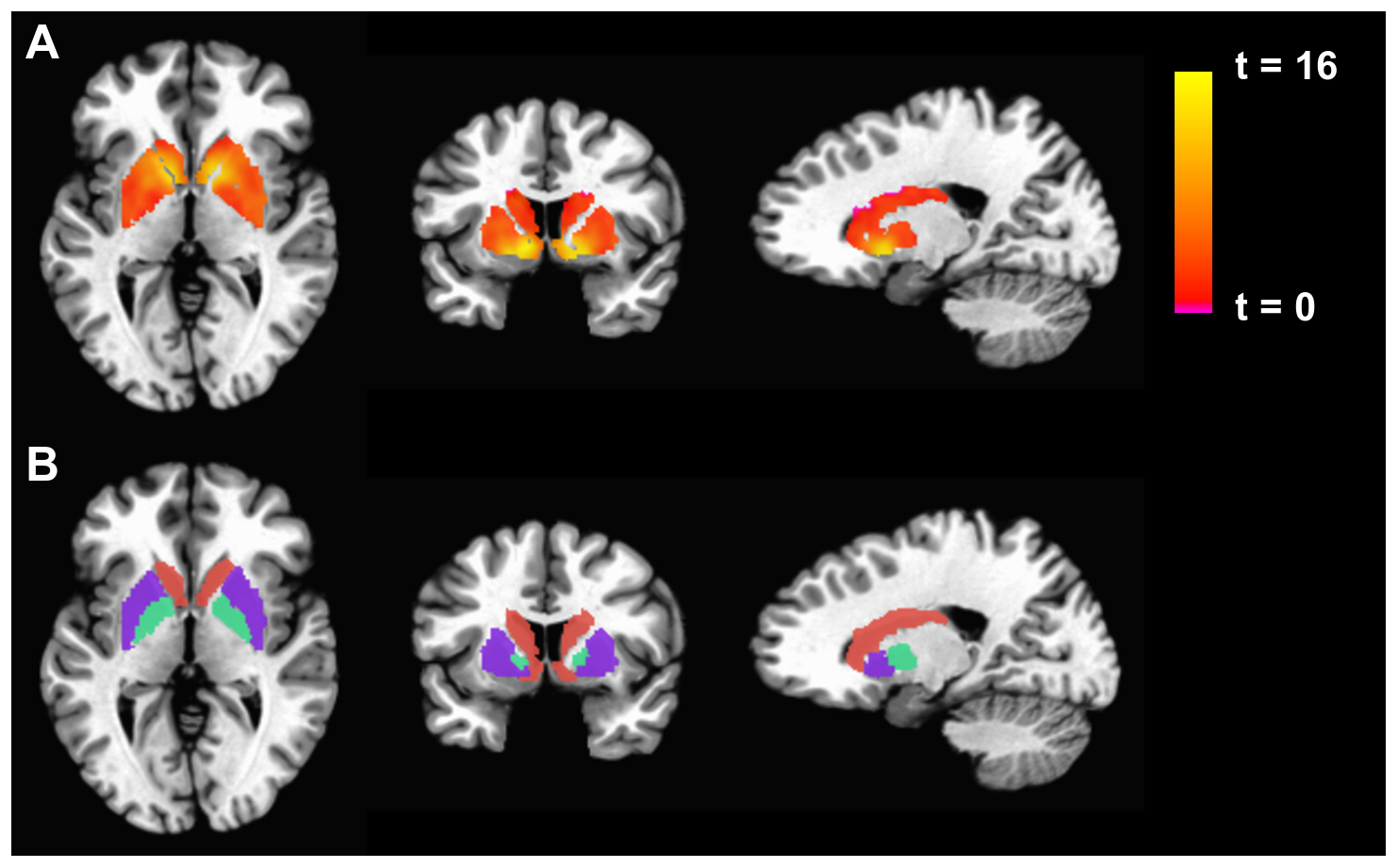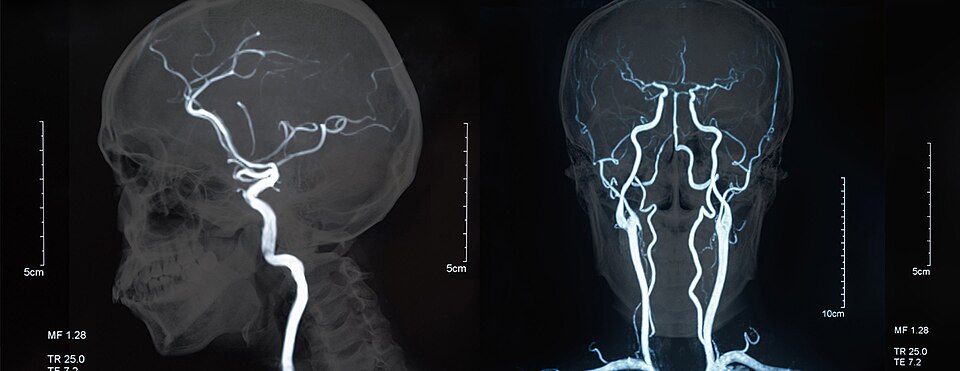Magnetic Resonance Imaging (MRI) is a vital tool in medical diagnostics, thanks to its high spatial resolution, safety, and non-invasive nature. It is highly effective at producing detailed images of soft tissues, making it indispensable for early detection and monitoring of conditions like cancer and neurodegenerative diseases, leading to significant improvements in survival rates and overall patient care.
There are numerous types of MRI scans, each developed and optimised for specific purposes. While the idea of needing an MRI scan can be daunting, understanding how they work and the different types available can alleviate some of the anxiety and help you feel more in control of your health. This article will explore how MRI scans work, delving into their benefits, limitations, and use cases.
A Comprehensive Guide to the Types of MRI Scans
What is MRI?
MRI is an advanced imaging technology that uses magnetic fields and radio waves to produce detailed images of the body’s internal structures.
Overview of MRI Technology
MRI machines use large, powerful magnets to generate a strong magnetic field around the patient. When a patient lies inside the MRI machine, the magnetic field aligns the hydrogen atoms in the body in a specific direction2.
The MRI machine then emits radio-frequency (RF) pulses, temporarily altering the alignment of these hydrogen atoms. When the RF pulses stop, the hydrogen atoms return to their original alignment, releasing energy as radio waves that are detected by the MRI scanner.
Different tissues contain varying amounts of hydrogen atoms and release energy at different rates, enabling the MRI scanner to distinguish between tissue types and generate cross-sectional images with high spatial resolution2.
Benefits of MRI
MRI offers numerous benefits across various medical fields, ultimately enhancing diagnostic accuracy, treatment planning, and patient outcomes. Key advantages of MRI scans include3:
- Detailed, high-contrast imaging: MRI provides high-quality images with excellent spatial resolution and soft tissue contrast, enabling the detection of subtle abnormalities and early-stage diseases.
- Versatility: MRI scans are highly versatile and can be used to examine most body parts. They aid in detecting tumours, injuries, and other abnormalities, and in diagnosing a wide range of conditions, including cancers, neurological disorders, heart disease, and stroke.
- Improved surgical planning and treatment decisions: The sensitivity and specificity of an MRI scan facilitate the generation of detailed reports, assisting in targeted surgical planning, tailored treatment strategies, and cancer staging.
- Safe, non-invasive imaging: MRI scans offer a non-invasive alternative to procedures requiring insertions or incisions. Being radiation-free, they have no long-term effects and are particularly useful for regular monitoring.
Limitations of MRI
While MRI scans are indispensable for many applications, they do have their limitations and are not always the best option in certain situations.
Limited effectiveness for certain types of cancer and bone injuries: MRI is highly effective at detecting solid tumours and soft-tissue abnormalities. Since blood cancers do not form solid masses, MRI is less suitable for their detection, and they are better detected through blood tests and bone marrow biopsies in the first instance, with imaging assisting in confirming metastasis in certain situations4. Additionally, CT scans are generally preferred for screening and early detection of lung cancer, which is why at Ezra, we offer a low-dose lung CT scan as an add-on with all our MRI scans.
Sensitivity to movement and longer scan times: MRI is highly sensitive to patient movement, which can degrade image quality5. Scans typically take around an hour, increasing the likelihood of movement and posing challenges for claustrophobic patients or those who struggle to or are unable to remain still6.
Types of MRI Scans
Functional MRI
Functional MRI (fMRI) is a specialised type of MRI scan that measures brain activity by detecting changes in blood flow using the blood-oxygen-level-dependent (BOLD) contrast technique7,8. It enables the non-invasive observation of brain function and connectivity and is used to study brain function in various neurological and psychological applications. For example, fMRI has been employed to understand brain network connectivity in stroke patients, revealing differences in functional connectivity that can inform prognostic and rehabilitation strategies9.

Cardiac MRI
Cardiac MRI is a powerful tool used to diagnose and manage various heart conditions. It provides detailed anatomical and functional information, enabling visualisation and quantification of muscle damage or inflammation, cardiac pump function, valvular function, myocardial contractility, perfusion, and viability. This comprehensive, radiation-free examination can be repeated regularly, guiding treatment decisions and optimising clinical management10.
Magnetic Resonance Angiography
Magnetic Resonance Angiography (MRA) is a type of MRI scan used to visualise blood vessels and detect various vascular conditions by employing time-of-flight (TOF) and contrast-enhanced (CE) techniques. TOF-MRA is helpful for imaging arteries and veins without contrast agents, while CE-MRA uses gadolinium-based agents to enhance blood vessel visibility, providing high-resolution images quickly. MRA is used to diagnose conditions such as peripheral artery disease, renal artery stenosis, and arterial dissection, as well as to identify blood flow abnormalities, narrowing or blockages, and aneurysms.

Diffusion MRI
Diffusion MRI (dMRI) is a highly specialised MRI technique that provides insights into the microstructure of brain tissues by measuring the diffusion of water molecules, revealing abnormalities that may not be visible on a normal MRI scan11. dMRI has proven highly successful in the management of stroke patients as well as in the development of novel treatment strategies for acute brain ischemia.
Breast MRI
MRI scans are beneficial for detecting and diagnosing breast cancer, especially in high-risk individuals. Compared to mammography, MRI has significantly higher sensitivity for detecting invasive breast cancer; in a study of high-risk women with inherited susceptibility to breast cancer, MRI detected 79.5 percent of invasive cancers, while mammography detected only 33.3 percent12.
Magnetic Resonance Spectroscopy
Magnetic Resonance Spectroscopy (MRS) is a specialised MRI technique that measures chemical changes in tissues, especially the brain13. Unlike MRI, which creates images, MRS detects specific metabolites using magnetic fields and radio waves. The resulting spectra show peaks that correspond to metabolite concentrations. These metabolite profiles help clinicians monitor metabolic changes in the brain during disease and after traumatic brain injury, as well as in response to treatment14,15.
MRI Safety and Preparation
MRI Safety
MRI scans are generally safe, but certain precautions are necessary:
- If you have metal implants, pacemakers, cochlear implants, or aneurysm clips, inform your healthcare provider, as these can be affected by the magnetic field.
- All metallic items, including jewellery and glasses, should be removed.
- For claustrophobic patients, options such as open MRI machines and sedation are available.
- Pregnant patients should avoid MRIs, especially in the first trimester, unless essential.
- Allergies or kidney issues should be reported if contrast agents are used.
- Ear protection will be provided due to the machine's loud noise.
Preparing for an MRI
Preparing for an MRI scan may seem daunting, but following these steps should ensure a safe and smooth MRI experience:
- Patients should wear comfortable clothing and be ready to change into a hospital gown if required.
- Follow specific instructions regarding food and drink, especially if a contrast agent will be used.
- Provide a complete medical history, including surgeries, implants, and medications, and arrive early to complete any necessary paperwork.
- During the scan, it can be helpful to use relaxation techniques, such as breathing exercises.
- After the scan, follow any post-scan instructions, particularly if a contrast agent was used16.
Summary: A Comprehensive Guide to the Types of MRI Scans
MRI scans are a vital tool in modern medical diagnostics due to their high spatial resolution, safety, and ability to produce detailed images of soft tissues. Various types of MRI scans, including fMRI, cardiac MRI, and MRA, each serve unique purposes in diagnosing and monitoring a wide range of conditions. Despite certain limitations, such as sensitivity to movement and longer scan times, MRI remains indispensable in early diagnosis and ongoing monitoring, significantly improving patient outcomes and treatment strategies.
Understanding these different MRI types and their applications can empower patients to manage their health effectively. If you want to be proactive about your health, why not book an Ezra MRI scan? Our annual scan can catch potential signs of cancer earlier, leveraging AI through the screening process to make it more efficient, affordable and faster.
Understand your risk for cancer with our 5 minute quiz.
Our scan is designed to detect potential cancer early.
References
1. MRI scan. nhs.uk. October 23, 2017. Accessed October 28, 2025. https://www.nhs.uk/tests-and-treatments/mri-scan/
2. Thomas KE, Fotaki A, Botnar RM, Ferreira VM. Imaging methods: magnetic resonance imaging. Circ Cardiovasc Imaging. 2023;16(1):e014068. doi:10.1161/CIRCIMAGING.122.014068
3. van Beek EJR, Kuhl C, Anzai Y, et al. Value of MRI in Medicine: More Than Just Another Test? J Magn Reson Imaging JMRI. 2019;49(7):e14-e25. doi:10.1002/jmri.26211
4. Blood Cancer UK | Blood cancer tests. Blood Cancer UK. Accessed October 28, 2025. https://bloodcancer.org.uk/understanding-blood-cancer/about-blood-cancer/blood-cancer-tests-diagnosis/
5. Chen G, Wang F, Dillenburger BC, et al. Functional magnetic resonance imaging of awake monkeys: some approaches for improving imaging quality. Magn Reson Imaging. 2012;30(1):36-47. doi:10.1016/j.mri.2011.09.010
6. Claustrophobia. nhs.uk. February 11, 2021. Accessed October 28, 2025. https://www.nhs.uk/mental-health/conditions/claustrophobia/
7. Functional magnetic resonance imaging (fMRI). GOSH Hospital site. Accessed October 28, 2025. https://www.gosh.nhs.uk/conditions-and-treatments/procedures-and-treatments/functional-magnetic-resonance-imaging-fmri/
8. Soares JM, Magalhães R, Moreira PS, et al. A Hitchhiker’s Guide to Functional Magnetic Resonance Imaging. Front Neurosci. 2016;10. doi:10.3389/fnins.2016.00515
9. Dørum ES, Kaufmann T, Alnæs D, et al. Functional brain network modeling in sub-acute stroke patients and healthy controls during rest and continuous attentive tracking. Heliyon. 2020;6(9):e04854. doi:10.1016/j.heliyon.2020.e04854
10. Lee E, Ibrahim ESH, Parwani P, Bhave N, Stojanovska J. Practical Guide to Evaluating Myocardial Disease by Cardiac MRI. Am J Roentgenol. 2020;214(3):546-556. doi:10.2214/AJR.19.22076
11. Le Bihan D. Looking into the functional architecture of the brain with diffusion MRI. Nat Rev Neurosci. 2003;4(6):469-480. doi:10.1038/nrn1119
12. Kriege M, Brekelmans CTM, Boetes C, et al. Efficacy of MRI and mammography for breast-cancer screening in women with a familial or genetic predisposition. N Engl J Med. 2004;351(5):427-437. doi:10.1056/NEJMoa031759
13. Bonavita S, Di Salle F, Tedeschi G. Proton MRS in neurological disorders. Eur J Radiol. 1999;30(2):125-131. doi:10.1016/s0720-048x(99)00051-0
14. Bartnik-Olson BL, Harris NG, Shijo K, Sutton RL. Insights into the metabolic response to traumatic brain injury as revealed by 13C NMR spectroscopy. Front Neuroenergetics. 2013;5:8. doi:10.3389/fnene.2013.00008
15. Cleland NRW, Al-Juboori SI, Dobrinskikh E, Bruce KD. Altered substrate metabolism in neurodegenerative disease: new insights from metabolic imaging. J Neuroinflammation. 2021;18:248. doi:10.1186/s12974-021-02305-w
16. Preparing for your MRI. Newcastle Hospitals NHS Foundation Trust. October 23, 2020. Accessed October 28, 2025. https://www.newcastle-hospitals.nhs.uk/services/neurosciences/neuroradiology/magnetic-resonance-imaging-mri/preparing-for-your-mri/




